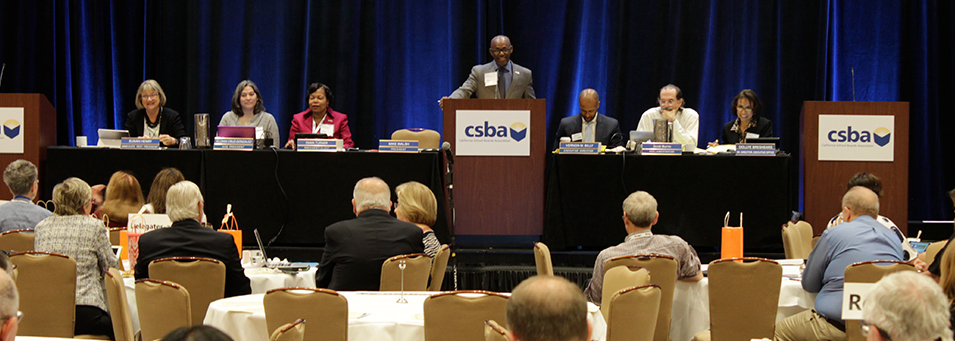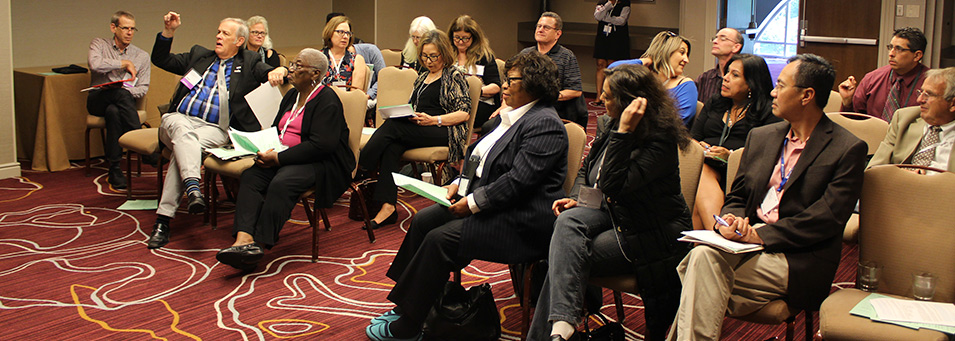governance

- CSBA’s legislative agenda supports CTE and mental health funding
- Delegates discuss marijuana legislation and school safety


The school safety breakout session focused on school safety plans, community partnerships, school climate, student reporting, social media monitoring and the funding needed for mental health resources, facilities upgrades and staff professional development. The input and recommendations received during these breakout sessions will inform CSBA’s training, policy development and legislative work on these issues in the coming months.
The impact of Assembly Bill 699, a law requiring school districts and county offices of education to adopt policies responding to immigration enforcement by July 1, 2018, was also discussed. CSBA policy staff recently worked directly with the California Attorney General’s office to help create updated immigration policy resources, and CSBA’s new sample policy AR 5145.13 – Response to Immigration Enforcement is consistent with the Attorney General’s guides. An estimated 250,000 undocumented children between the ages of 3 and 17 years are enrolled in California public schools, and 750,000 K-12 students in California have an undocumented parent.
Delegates received important updates on legal cases in which CSBA and the Education Legal Alliance are participating, as well as updates on other significant cases affecting public education. One such important case is Janus v. AFSCME, which will determine whether public employees will continue to be required to pay their “fair share” or “agency” fees of union dues — used for collective bargaining and contract administration — regardless of whether they choose to join the union.
CSBA’s members elect representatives from 21 geographic regions to the Delegate Assembly, which is made up of approximately 280 delegates and the Board of Directors. The Delegate Assembly is a vital link in the association’s governance structure and sets the general policy direction for the association. Working with local districts, county offices, the Board of Directors and Executive Committee, Delegates help to ensure that the association promotes the interests of school districts and county offices of education throughout the state.